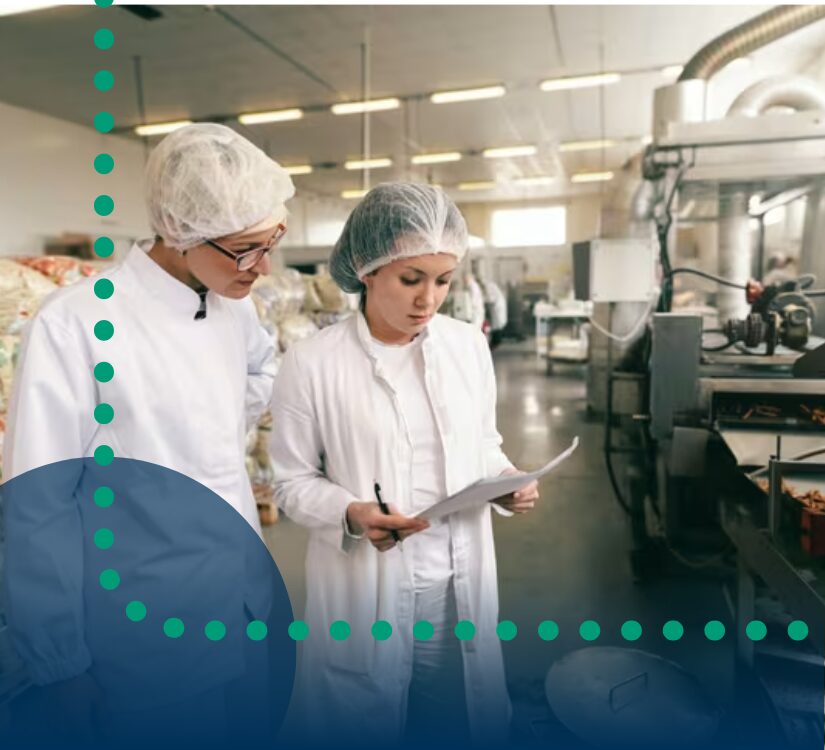
Global awareness of environmental sustainability is becoming more and more common. Because of this, many operations are adopting new and innovative solutions to be more sustainable across a variety of processes. This is especially true of the food and manufacturing industries.
A big part of this push for change is consumer demand including, packaging and processing, the rise of plant-based alternatives, and evolving food safety protocols.
Here we’ll explore the three latest trends currently shaping the food manufacturing industry as it moves towards a more sustainable future.
Packaging and processing
More companies are beginning to adopt sustainable practices through eco-friendly packaging solutions and sustainable processing methods to reduce their environmental impact.
Shifting from traditional plastic packaging to biodegradable and compostable materials helps reduce plastic waste and is made from renewable resources—such as cornstarch, sugarcane, bamboo, and recycled materials. Incorporating post-consumer recycled content into packaging helps reduce the demand for refined materials and lowers the carbon footprint. Utilizing these resources to create packaging that breaks down more quickly and safely in the environment can help reduce plastic pollution.
When changing packaging and processing methods, cost is often a major concern. However, many manufacturers have managed to reduce these costs by designing lightweight packaging. This trend not only minimizes waste but also lowers greenhouse gas emissions associated with transportation, leading to improving sustainable practices.
Food manufacturers are also lowering costs by adopting energy-efficient processing methods and alternative energy sources. Techniques such as cold processing, high-pressure processing (HPP), and pulsed electric fields (PEF) are being utilized to reduce energy consumption and improve product quality.
Renewable energy sources such as solar, wind, and biomass are also being explored to minimize energy usage further and enhance sustainability across the industry.
Plant-based alternatives
Whether at the grocery store or ordering a morning latte, the availability of multiple alternatives has significantly increased. As consumers become more health-conscious and environmentally aware, the demand for plant-based foods continues to surge.
What drives the preference for plant-based alternatives is they can be environmentally friendly while satisfying consumers’ growing demand for health-conscious products.
Plant-based alternatives produce fewer greenhouse gases, require less land, and preserve natural ecosystems. These farming practices create less pollution, have a low impact on water quality, and help preserve biodiversity.
In addition, consumers are becoming increasingly aware of nutrient-dense products and are seeking options with simple, recognizable ingredients. Plant-based foods often fit this demand, as they are often viewed to be healthier and more natural.
Plant-based alternatives like soy, peas and lentils are now used to make meals, dairy products and snacks which have a lower environmental impact and appeal to vegetarians and vegans. Plant-based milks, cheeses, yogurts and ice-cream made from almonds, soy, oats, and coconuts are also becoming popular, especially among those with lactose intolerance, due to their ecological benefits and efficiency.
Evolving food safety practices
With the current increase in recalls, food safety remains a crucial concern within the food manufacturing industry.
Ongoing government efforts to enforce stricter safety regulations are helping to drive advancements in the industry and for food manufacturers to remain compliant. An example of this is the Food Safety Modernization Act (FSMA), which requires manufacturers to implement preventative controls and improve their food safety practices.
Innovations in testing methods, such as rapid pathogen detection and DNA-based testing, as well are advancing food safety by reducing the risk of foodborne illnesses and strengthening consumer assurance in products.
The latest trend in enhancing food safety practices is the integration of technology. Many manufacturers are adopting technologies, such as blockchain, to improve the tracking of food products from farm to table, ensuring greater transparency and safety. Automation and robotics are also being used to improve food safety and quality control. Automated systems can handle repetitive tasks and ensure consistent product quality to keep up with demand effectively.
In response to modern challenges and demands, the industry continues to evolve, focusing on more sustainable practices, food safety, and public health. Companies that actively embrace these trends and implement innovative solutions are well-positioned to succeed in today’s competitive market.



